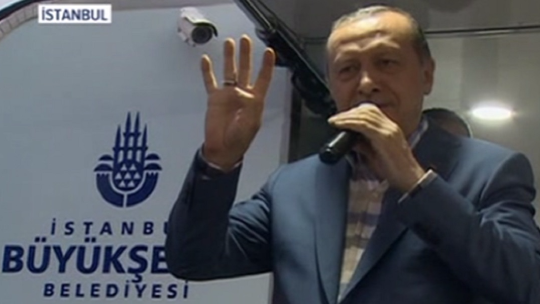
The extradition process of Fetullah Gülen
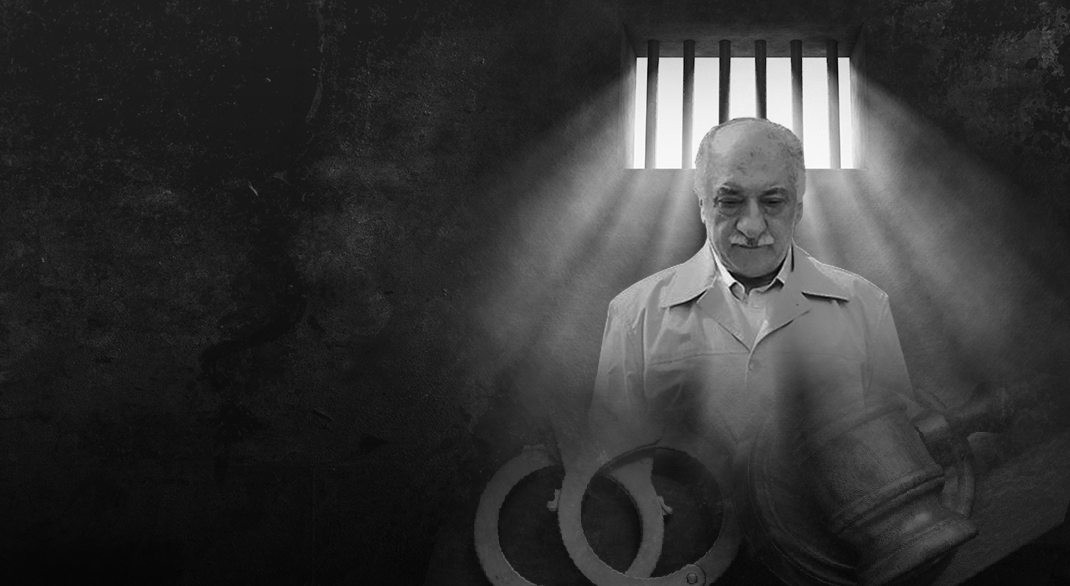
The extradition process of Fetullah Gülen
The Fetullah Terror Organization (FETÖ), which perpetrated the July 15 coup attempt, aimed to deal a death blow to the elected government and democracy in Turkey. As a result of FETÖ-affiliated putschist soldiers’ attacks, a 248 civilians, police officers and anti-coup soldiers were martyred, and another 2,195 others were injured. The putschist soldiers who were arrested after July 15 confessed that the coup plot was masterminded by FETÖ in the testimonies they gave to prosecutor’s offices. Many FETÖ members’ involvement in the coup attempt; correspondences via the ByLock app, which was used by FETÖ members; the finding of the meeting between Gülen and Adil Öksüz, one of Gülen's right-hand men who was arrested at Ankara’s Akıncı 4th Main Air Base on the night of the coup attempt but was released after a short while; and the testimonies of two anonymous witnesses codenamed “Kuzgun” and “Şapka” that Gülen planned the coup, point to FETÖ leader Fetullah Gülen’s role in the coup attempt. As a matter of fact, it was revealed that Öksüz, who was found to be the FETÖ imam in charge of the Air Force in the investigation initiated by the prosecutor's office, went to the U.S. two times before July 15, finally returned to Turkey on July 13 and came to Ankara and held a meeting with putschists on July 14. Öksüz’s relations with Gülen indicate that those who planned the coup attempt were affiliated with Gülen and the structure he founded.
It was found that Öksüz, who went to the U.S. On July 11, held a meeting with coup makers after he returned to Turkey
After July 15, Turkey’s most important request from the U.S. has been Gülen’s extradition to Turkey. Following the coup attempt, President Recep Tayyip Erdoğan and Prime Minister Binali Yıldırım requested the U.S. administration extradite Gülen’. Within this period, Ankara shared relevant evidence for Gülen’s extradition with U.S. authorities and initiated direct talks with the U.S. administration.
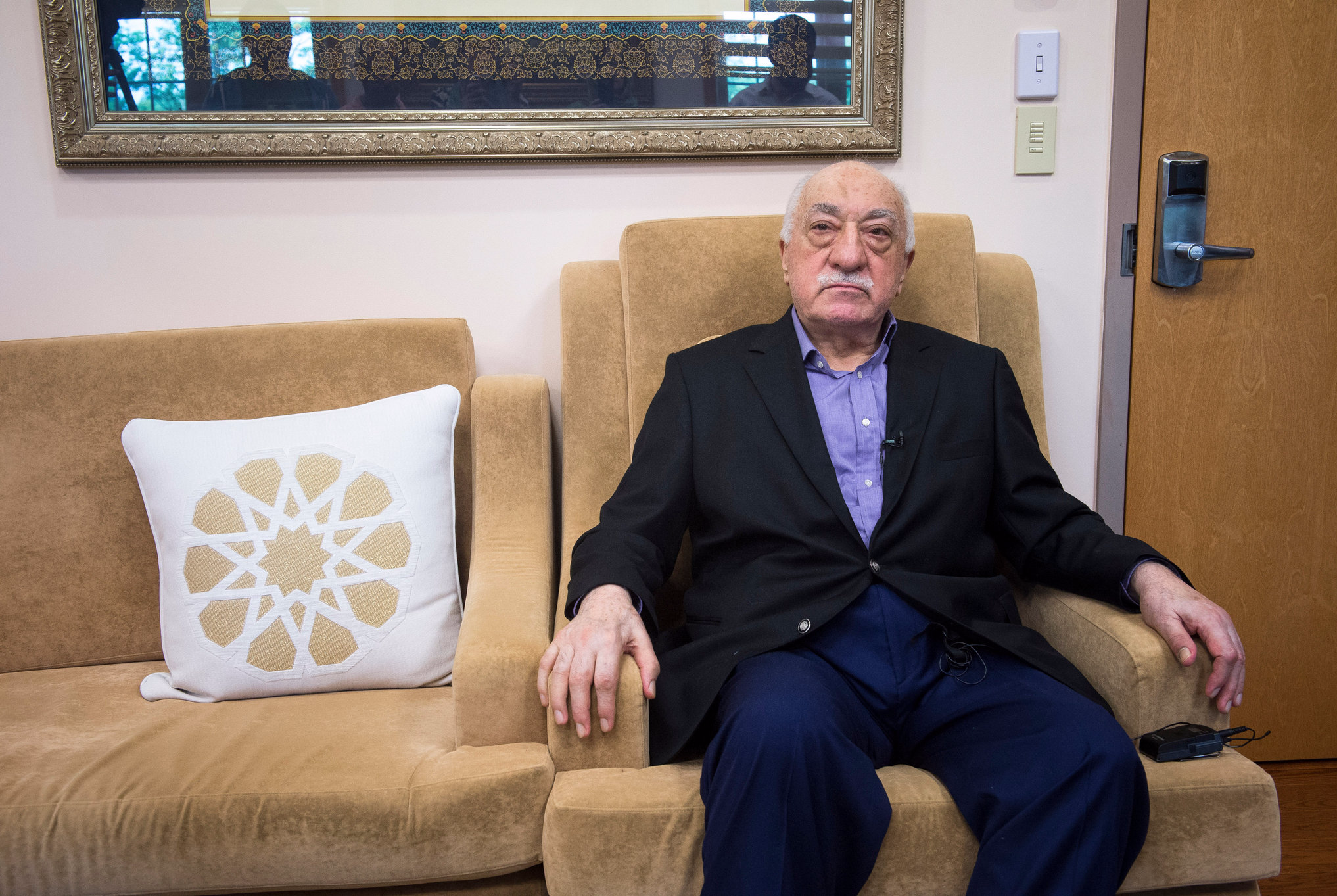
Even though the request for Gülen’s extradition to Turkey started to be discussed more heatedly after the July 15 coup attempt, these discussions go back many years. The extradition of Gülen originally came up when he fled to the U.S. shortly before a lawsuit was brought against him in 1999. Likewise, following the Dec. 17 and the Dec. 25 plots in 2013, Turkey requested Gülen’s extradition from the U.S. administration. With Ankara conveying its extradition request to Washington through official channels after the July 15 coup attempt, the discussion of Gülen’s extradition has become high on Ankara’s agenda. The Treaty on Extradition and Mutual Assistance in Criminal Matters between the United States of America and the Republic of Turkey, which was signed in 1980, constitutes the most important point of reference for Turkey's extradition request. One could say that the debates on Gülen’s extradition in terms of the extradition treaty are one of the most important issues of the last 17 years in bilateral relations between Turkey and the U.S.
The background of the discussion of extradition
After the report “ Fetullah Gülen and the Light Sect [Nurcular]”, which was prepared by former Ankara Police Chief Cevdet Saral and former Ankara Deputy Police Chief Osman Ak in 1999, was sent to the prosecutor’s office, the first lawsuit against Gülen was brought by Ankara State Security Court Prosecutor Nuh Mete Yüksel. Gülen had fled to the U.S shortly before the report was submitted to the prosecutor's office.
In an indictment he prepared in 2000, Yüksel stated that Fetullah Gülen is the leader of a terrorist organization, suggesting that Gülenists “plan to reach a position to have a say within the TAF [Turkish Armed Forces] within 10 years with this method and structuring.”
Gülen, who fled to the U.S. on a tourist visa, applied for a residence permit after moving to Pennsylvania. Meanwhile, a phone tapping scandal known as “The 8th Floor Gang” broke out in Turkey. It was alleged that the team, including Cevdet Saral and Osman Ak, that prepared the report that caused Gülen to escape to the U.S., illegally wiretapped 963 people, including the president, prime minister and chief of General Staff. Then Interior Minister Sadettin Tantan suspended a number of security officials, including Ankara Police Chief Cevdet Saral, Police Intelligence Department head Sabri Uzun and Ankara Deputy Police Chief Osman Ak with an order on June 8, 1999.
It was announced in the official statement that the suspension of Saral and Ak were implemented onthe minister’s order. A “tape” scandal was raised regarding Ankara State Security Court Prosecutor Nuh Mete Yüksel, who initiated a lawsuit against Gülen and said in his indictment that Gülen was a terrorist organization leader. Gathering on Oct. 22, 2002, the High Council of Judges and Prosecutors (HSYK) condemned Yüksel as part of a report prepared by inspectors. Following this decision, Yüksel resigned from the State Security Court Prosecutor Office. With Yüksel’s resignation, great uncertainty emerged with respect to the lawsuit that was opened against Gülen.
Within this period, Gülen's applications for visas in various categories were rejected. After the rejection of all applications he made, Gülen applied submitted anI-140 immigrant worker petition for immigrant visastatus in November 2006. In order to be able to qualify for this petition, it was necessary to be an exceptionally successful professor, researcher or a qualified worker. Within this period, Gülen was also acquitted inthe lawsuit that was brought against him in Turkey.
Gülen's lawyer made the argument that his client’s obtainment of a green card would be "for the benefit of the U.S."
The U.S. Homeland Security Department rejected Gülen's application on Nov. 19, 2007. Gülen presented 30 reference letters to the court and submitted a new petition to obtain a green card on June 4, 2008. Among those who wrote reference letters were CIA officials, American academics and others who are known as important advocates of inter-religion dialogue. The most notable of them was then CIA Central Intelligence Analysis Director George Fidas, CIA official and member of the U.S. Intelligence Council Graham Fuller, and U.S. Ambassador Morton Abramowitz, who had served in Ankara for a while and was closely acquainted with Gülen. During the petition process, Gülen's lawyer made the argument that his client’s obtainment of a green card would be "for the benefit of the U.S." Eventually, the Court of Cassation [PK1] paved the way for Gülen to receive permanent resident status by rejecting the objections of the Department of Homeland Security on July 16, 2008, ruling: "He is entitled to a residence permit as a political and religious scholar.”
[PK1]The U.S. does not have a court of cassation!!!!
The discussion of Gülen’s extradition
After obtaining the U.S. residence permit, Gülen settled in a farm house in Pennsylvania. Meanwhile, with an amendment that was made to Article 1 of Turkey’s Anti-Terrorism Law No: 3713 titled The Definition of Terrorism, as part of a judicial reform on May 5, 2006, a condition of “committing felony and armed action” was added to the definition of terrorism. After the amendment, Gülen’s lawyers appealed to the court, claiming that their client was innocent.

The report, which the Ankara 11th High Criminal Court requested from the Police, said that Gülen was not involved in a crime containing force and violence. Taking the police report as a reference, the court ruled that no crime had been committed in accordance with the Anti-Terrorism Law and acquitted Gülen. The Ankara 11th High Criminal Court’s ruling was approved by the Penal Department No. 9 of the Supreme Court in March 2007. With the dismissal of the lawsuit against Gülen, Ankara put its discussions of extradition into “coldstorage”. Gülen refused to return to Turkey at the time, citing health problems. However, he maintained his relation with the structure he founded and continued to lead and guide from Pennsylvania.
Gülen's coup attempt
FETÖ members began infiltrating the police, judiciary, Turkish Armed Forces (TAF) and bureaucracy in Turkey on orders and encouragement from Gülen after the end of the 1980s, and created a large sphere of influence in the police and judiciary in the 2000s. Owing to the power it obtained over more than 30 years, the FETÖ began acting like a parallel state as of 2010, and settling scores with segments that objected to it by using its power in the police and judiciary. Having gained significant power in the bureaucracy and other state institutions, FETÖ members attempted to stage an operation against the state.
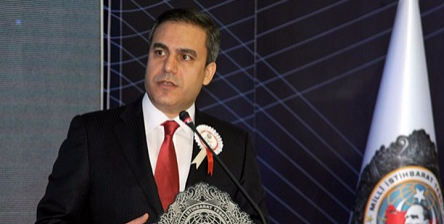
FETÖ-affiliated prosecutors and police attempted to arrest National Intelligence Organization(MİT) head Hakan Fidan on Feb. 7, 2012, aiming to deal a major blow to thestate. FETÖ could not achieve its objective after then Prime Minister Recep Tayyip Erdoğan ordered Fidan not to give testimony and an amendment was made to the MİT law later. Following this, FETÖ began targeting the government. With the discussion of private teaching institutions in 2013, FETÖ began targeting the government via affiliated media outlets and many other institutions it had. Following the discussion of private teaching institutions, it strove to deal ablow to the government with a large conspiracy operation. Targeting the government on Dec. 17 and Dec. 25, 2013, under the cloak of a corruption probe,FETÖ launched a large operation in cooperation with the police and judiciary.
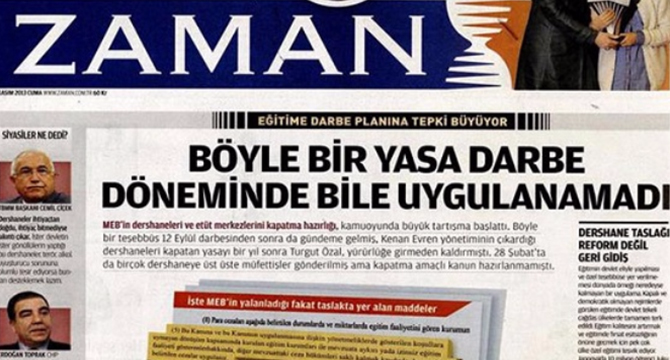
The government tried to take effective measures against the FETÖ conspiracy operation, which was presented as a corruption scandal. While FETÖ-affiliated Prosecutors Zekeriya Öz and Sadrettin Sarıkaya, who ran the operation, were replaced, some position changes were made in the police as well. While FETÖ-affiliated media outlets turned the government into a target after the operation, it embraced FETÖ-member prosecutors and police staff. Having initiated a major perception manipulation through the media, FETÖ pointed to then Prime Minister Erdoğan and the government as targets both at home and abroad. Discussions of Gülen’s extradition reawakened in Turkey after these incidents. Calls were first made for Gülen to return to the country. After Gülen’s rejection of these calls and FETÖ’s acts that targeted the government, the dimensions that the FETÖ threat reached were better understood. After this, Turkey began demanding Gülen’s extradition from the U.S. in its fight against the FETÖ parallel structure threat. The issue of Gülen’s extradition was addressed during a phonecall between Erdoğan and then U.S. President Barack Obama on Feb. 19, 2014. Erdoğan voiced Turkey’s uneasiness with Gülen's presence
in Pennsylvania and requested his extradition. Gülen’s extradition before and after the March 30 local elections and the Aug.10 presidential elections in 2014 was one of the most important items on Ankara’s agenda. Now President Recep Tayyip Erdoğan, while attending the NATO summit in Wales in September 2014, again requested Gülen’s extradition from Obama. Erdoğan shared Turkey’s finding about the “parallelstructure” while requesting Obama either extradite of deported. During the meeting with Obama, Erdoğan reportedly said: “This structure is threatening Turkey’s national security and his presence in the U.S. disturbs us.” During his visit to New York on Sept. 23, Erdoğan made a statement after the Foreign Relations Council meeting, in which he said that the U.S. must abide by the extradition process and extradite Gülen to Turkey. In response to Turkey’s extradition request, the Obama administration’s attitude highlighted that it is a legal case for the judiciary. Obama waiting and remaining silent concerning the extradition request has long come under fire in Turkey.
FETÖ-linked organizations and institutions’ propaganda against Turkey and Erdoğan at home and abroad negatively affected Turkey’s request
for Gülen’s extradition.
While the U.S. administration criticized Turkey on issues such as freedom of the press and judicial independence, it remained silent about Gülen’s extradition and “parallel state structure”. Within this period, FETÖ-affiliated media outlets tried to defame Turkey abroad with headlines such as “A one-man regime is wanted to be established in Turkey”, “The media is being pressured” and “The judiciary has lost its independence”. The FETÖ’s anti-Turkey lobbying activities abroad also negatively affected Turkey’s requests for Gülen’s extradition.
In May 2016,Turkey sent a file, which it prepared on Gülen on eight different charges, tothe U.S.
President Recep Tayyip Erdoğan and then U.S. President Barack Obama met during the G-20 Antalya Summit in November 2015. During the bilateral meeting, Erdoğan told Obama about the harm FETÖ does to Turkey, reiterating the necessity of Gülen’s deportation or extradition to Turkey. Turkey then began sharing files with the U.S. administration with respect to the crimes that FETÖ had been accused of in Turkey. In addition, a lawsuit was brought against Gülen in the U.S. In February 2016, the Justice Ministry sent a written statement to the U.S. concerning Gülen’s extradition. In May 2016, a file on Gülen, including eight different charges,was prepared. Gülen was accused of “aggravated fraud, the forgery of official documents, calumniation, laundering asset values originating from the offense, embezzlement, wiretapping and recording conversations between people, violation of privacy, and recording personal data in contravention of the law in the comprehensive file that the Ankara Public Prosecutor prepared for Gülen’s extradition from the U.S. Turkey legally requested the U.S. to extradite Gülen based on the countries’ extradition treaty.
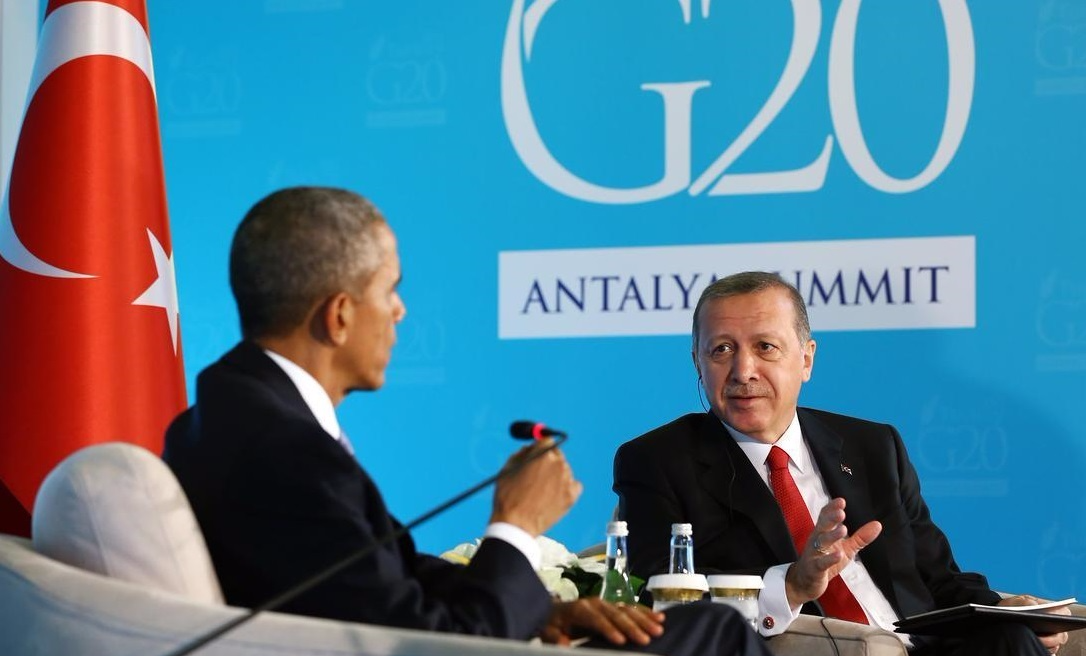
The July 15 coup attempt: Extradition request and the U.S.
While the FETÖ coup attempt on July 15 accelerated Turkey’s struggle with FETÖ, it made the issue of Gülen’s extradition the most important item on Ankara’s agenda. Through the coup attempt, FETÖ members martyred 248 people and bombed places such as the Grand National Assembly of Turkey (TBMM), National Intelligence Organization (MİT), satellite operator TÜRKSAT, Gölbaşı Special Operations Center and the Presidential Palace complex. However, they were repelled by popular resistance. Following the coup attempt, which targeted Turkey, democracy, President Erdoğan and the government, Turkey clearly requested the U.S. extradite Fetullah Gülen. During a speech in Kısıklı, Erdoğan said they expect the U.S. to take a step in this regard.
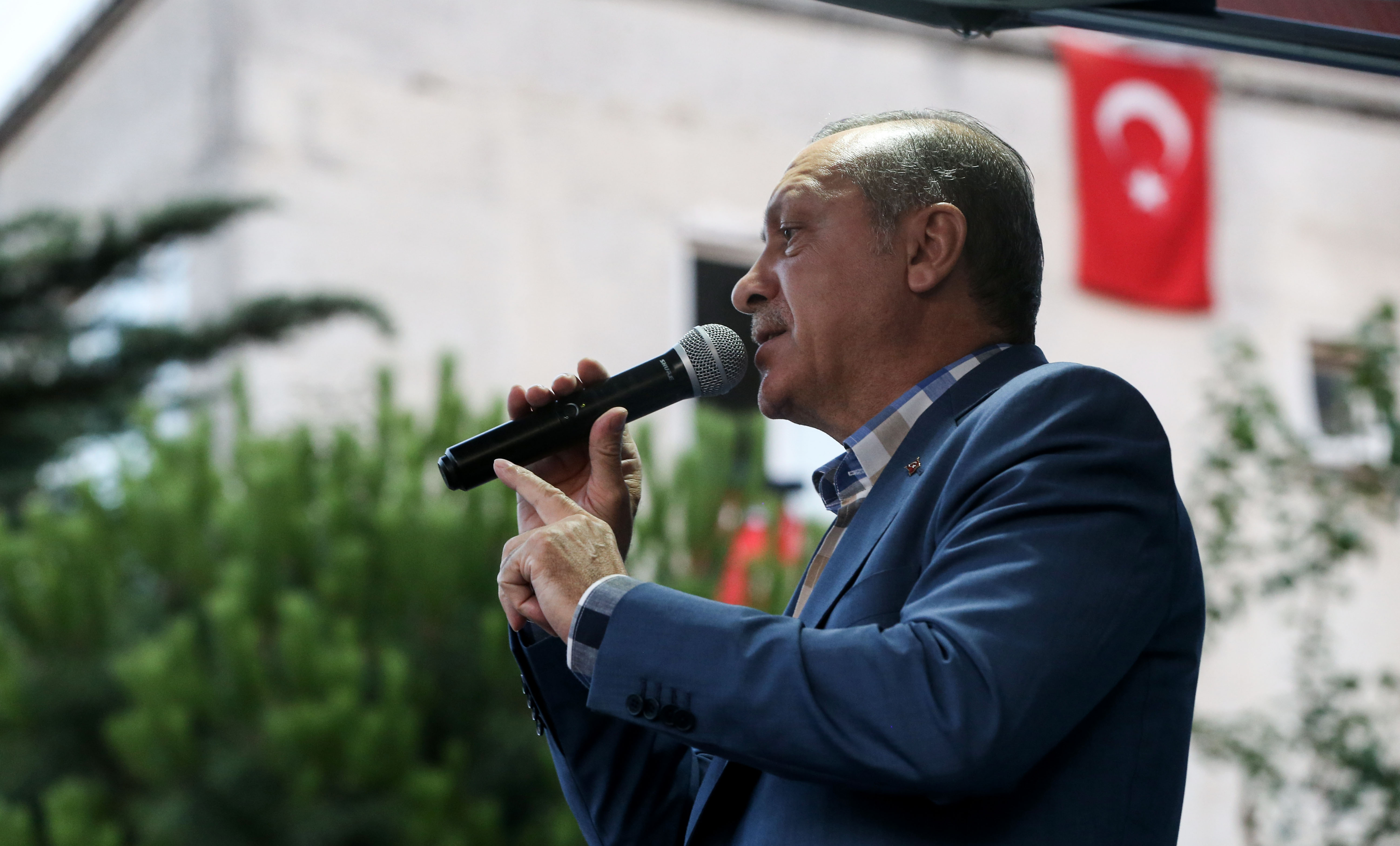
Erdoğan said in his speech: “I am calling on the U.S., Mr.President from here, and I am saying: Mr. President, I have told this to you: ‘Either deport the person who resides in a 400-decare area in Pennsylvania or give him to us.’ And I told you that they were in an attempt to stage a coup, but could not make you listen. After the coup attempt, I call once again today and say surrender this Pennsylvania-based person to Turkey.”
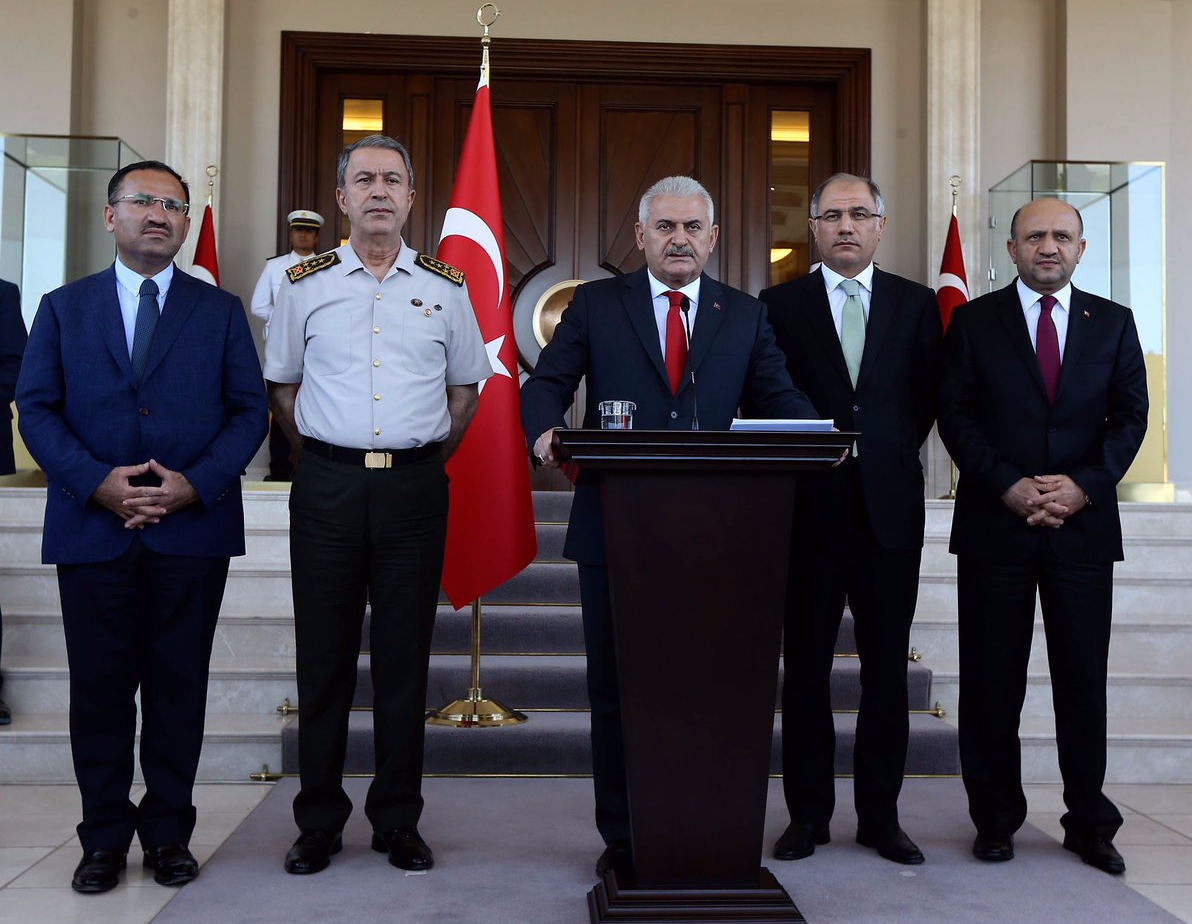
Making statements about Gülen’s extradition on July 16, Prime Minister Binali Yıldırım said: “After last night’s incident, I cannot see any country that can stand behind this man, this gang leader and the head of this terrorist organization. The country that will stand behind him is not a friend, it is in a battle against Turkey."

The U.S. administration kept quiet about the coup attempt in Turkey and made the first statement three hours after the coup began. It wanted evidence for Gülen’s extradition. Following the suppression of the coup attempt, then U.S. Secretary of State John Kerry said he hoped for “peace, stability and continuity in Turkey”, adding on July 16 that they expected legal evidence, created as are sult of investigations, from Turkey, and that “the U.S. will accept this [evidence], examine it and eventually make an appropriate decision.” Statements from the White House were similar. The White House said it also expected evidence from Turkey.
On July 19, the White House announced that Turkey made a formal request for Gülen’s extradition.
Calling President Erdoğan on July 19, three days after the coup attempt, then U.S. President Obama conveyed the “belated” message that the U.S. sides with Turkey. The White House’s statement about the telephone call said: “Turkey made a formal request for Gülen’s extradition. All kinds of support will be given for the investigation of the coup.” On July 20, Justice Minister Bekir Bozdağ said: “As our prime minister explained, we have requested Gülen’s extradition from the U.S. with four different files. We directly conveyed them to the U.S.’s relevant and competent authorities and the Justice Department in the electronic environment.”
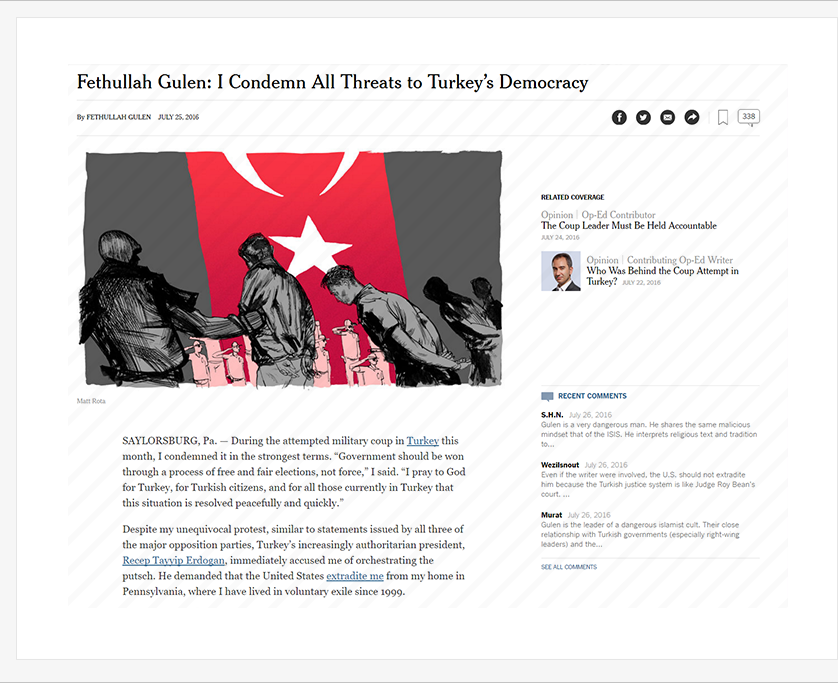
On the same day, Gülen called on the U.S. administration not to extradite him to Turkey. On July 25, Foreign Minister Mevlüt Çavuşoğlu said: “If Gülen is not extradited, Turkish-U.S. relations will be negatively affected.” On July 26, Gülen made a new statement against extradition in an opinion piece Gülen wrote for The New York Times, saying: “At a time when Western democracies are searching for moderate Muslim voices, I and my friends in the Hizmet [Service] movement have sided with the West.” In the same piece, he called on the U.S. administration, saying: “The temptation to give Mr. Erdoğan whatever he wants is understandable. But the United States must resist it.”
On Aug. 2, a delegation of members from the Grand National Assembly of Turkey’s Foreign Affairs Committee went to the U.S. They shared the details of FETÖ’s role in the coup attempt with U.S. authorities with the intention of securing Gülen’s extradition to Turkey. Within the framework of new documents and information that Turkey sent to the U.S. on the same day, Ankara requested Gülen be arrested until his extradition. The U.S. administration announced that it would examine the documents, but did not take any steps to arrest Gülen.
On August 5, U.S. State Department spokesman Mark Toner said documents concerning Fetullah Gülen’s extradition continued to come from Turkey and explained that the documents they had gone through so far could not be accepted as “a formal extradition request.” He said: “We subsequently received more documents. We're looking through them ... and I don't think they've reached that determination yet.”
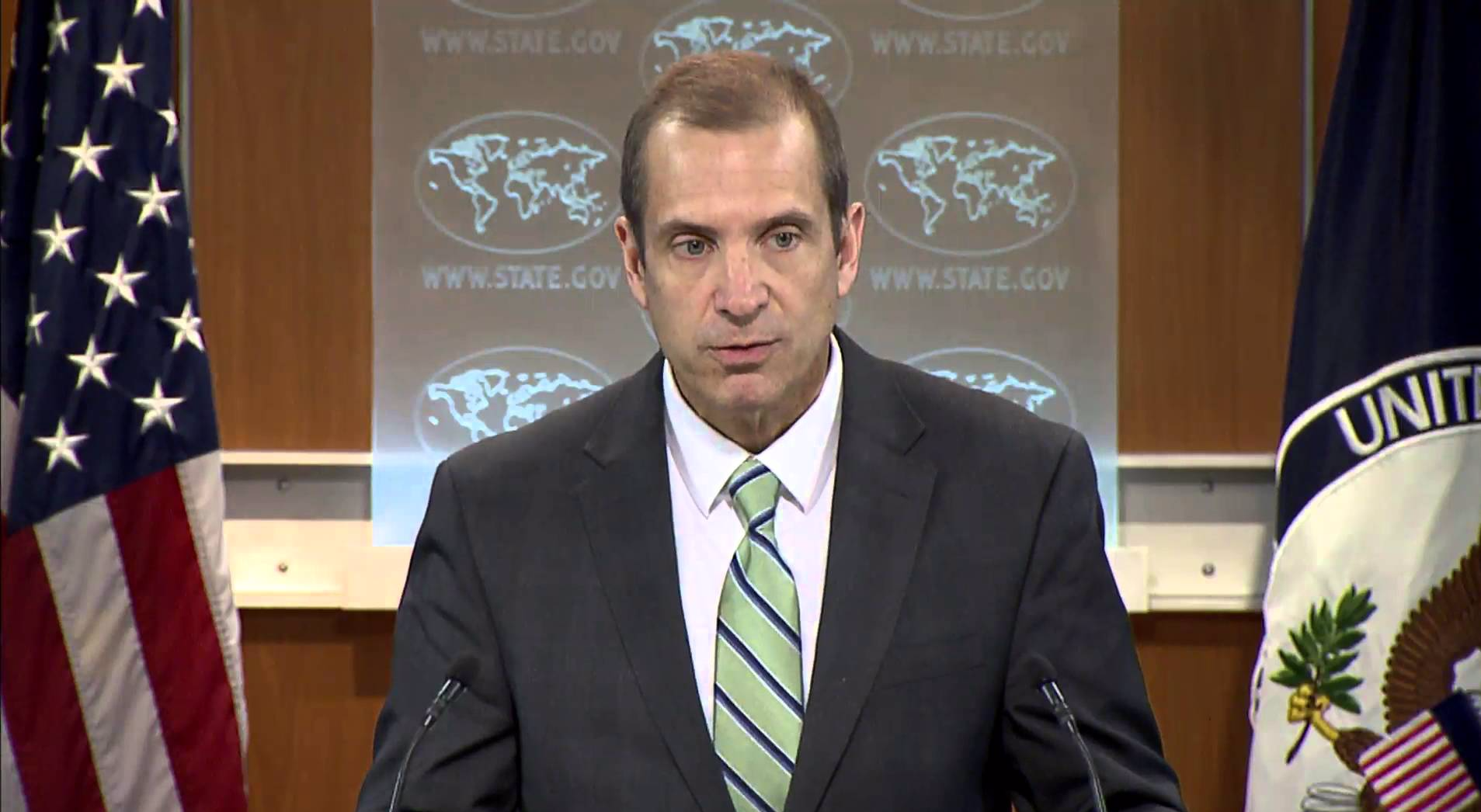
While the attitude that the U.S. adopted after the coup attempt sparked much criticism in Turkey, on the issue President Erdoğan said: “Sooner or later, the U.S. will make a choice. Either Turkey or FETÖ. Either the putschist, terrorist FETÖ or Turkey, the country of democracy.”
While the request for Gülen’s extradition led to great tension between Turkey and the U.S., the U.S. administration insists that extradition processes area legal issues. Calling the coup attempt as “theater,” Gülen made statements aimed at Turkey and President Erdoğan. In response to this, Turkey emphasized that Gülen, the mastermind of the coup attempt, must be extradited in accordance with the extradition agreement that was previously signed between the two countries. Taking a new step in the face of Ankara’s warnings, the U.S. announced that then Secretary of State Kerry and U.S. Justice Department authorities would come to Turkey. Then Vice President Joe Biden replaced Kerry for the visit. On Aug. 22, Justice Department authorities came to Turkey to address the extradition process. Meeting Turkish Justice Ministry authorities, U.S. authorities were thoroughly informed about FETÖ’s offenses, the coup attempt and Ankara’s desire for Gülen’s extradition.
U.S. Vice President Joe Biden’s visit to Turkey did not alleviate the tension between the two countries regarding the extradition process.
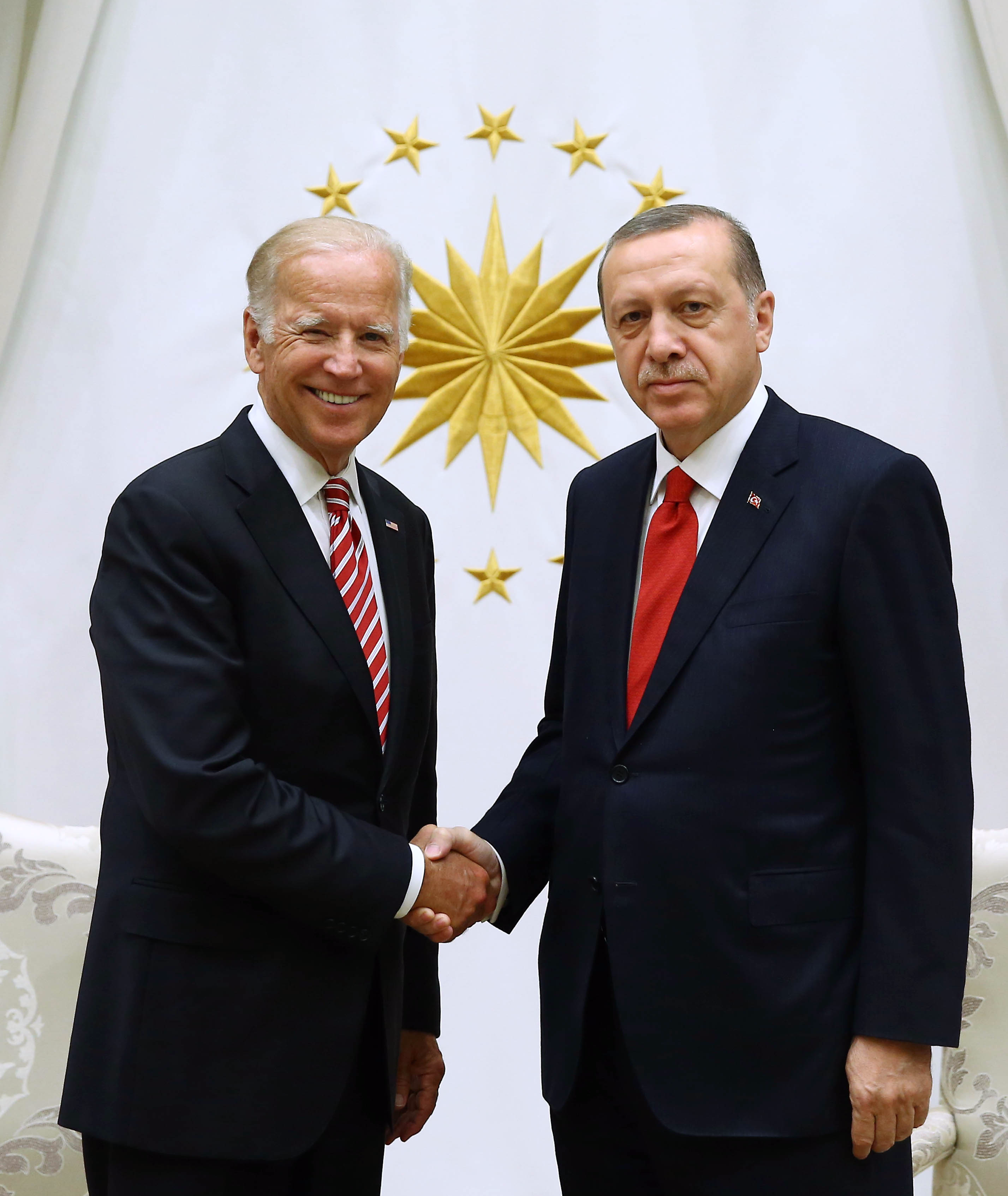
On Aug. 24, U.S. Vice President Joe Biden came to Turkey and met both President Erdoğan and Prime Minister Yıldırım. Following the meeting with Yıldırım, Biden said that it was courts that would decide on Gülen’s extradition, adding: “We have no intention to shelter someone who would attack an important ally of the U.S.” In a meeting with the Parliament speaker, Biden said: “I wish Gülen had not been in our country.”
The issue ofFETÖ leader Gülen’s extradition has been one of the most important issues ofthe last 17 years in bilateral relations between Turkey and the U.S.
Erdoğan told Biden during the bilateral meeting: "The greatest priority for us is Gülen’s extradition to Turkey," and Biden said: "We have no reason to protect Gülen,” adding that the courts would decide on the extradition. After these talks, the U.S. administration reiterated it messages of support for Turkey, announcing that the documents that Ankara sent to the U.S. were being examined. The U.S. administration’s statements continued consternation in Turkey.
Justice Minister Bekir Bozdağ went to the U.S. along with Erdoğan and his delegation when he went there to attend the U.N. General Assembly meeting on Sept. 20. He addressed the extradition process with U.S. authorities. Making statements after a meeting between Erdoğan and Biden in New York, the White House reiterated its message that it sided with Turkey after the coup attempt and that that American legal experts were ready to work with their Turkish counterparts on the question of Gülen’s extradition.
The varying attitudes between Turkey and the U.S.
Making statements about Gülen’s extradition, Justice Minister Bekir Bozdağ said the U.S. knew that Gülen was behind the coup attempt. He added: “I am sure Mr.Obama knows that Fetullah Gülen perpetrated the coup as much as he knows himself.” In another statement on Sept. 28, Bozdağ said they would convey a new request to the U.S. for Gülen’s arrest. He said: “We requested the extradition and urgent arrest of Gülen four previous crimes. According to Article 9 of the extradition agreement between us, the U.S. has to arrest Gülen. After arrest, it might request additional documents from us. Secondly, we also conveyed Ankara’s arrest warrant about the July 15 coup attempt. The warrant concretely reveals that he must be urgently arrested and lists the justifications for this. During our bilateral meeting, the U.S. vice president said they began receiving concreate evidence with respect to the coup attempt. They said they would convey their results of our evaluation within one or two days.”
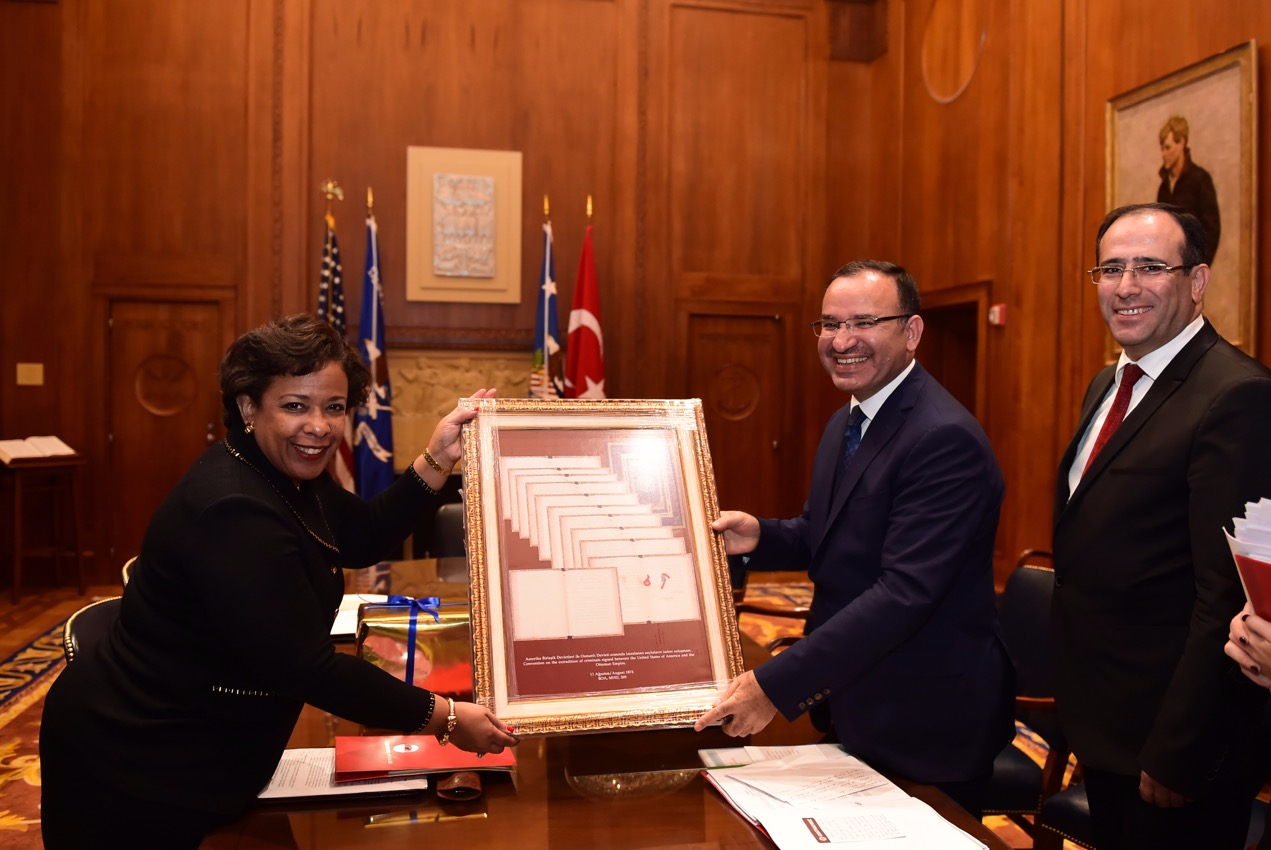
During a televised interview on Oct. 27, Justice Minister Bekir Bozdağ said that they wanted Gülen to be provisionally arrested in accordance with Article 10 of the extradition agreement between Turkey and the U.S. Meeting with then U.S. Attorney General Loretta Lynch, Bozdağ said that the U.S.’s approach toward the extradition process began changing. He added that if Gülen was not extradited, Turkey would respond in kind to extradition requests from the U.S. The forthcoming Nov. 8, 2016 presidential election in the U.S. had a direct impact on the discussions of Gülen’s extradition.
Ankara interpreted the Obama administration’s Fabian policy as it wanting to leave the extradition process to the next administration, which made the Nov. 8 presidential election critical for Turkey as well. The period of uncertainty until Nov. 8 reached an end when Republican candidate Donald Trump won the election. Following Trump’s election, Turkey’s main expectation was that the new U.S. president would display an effective will concerning Gülen’s extradition after taking office.
In an article published in The Hill on the last day of the election campaign, Michael Flynn, who was appointed as a national security advisor in Trump’s cabinet, gave a strong signal about Gülen’s extradition, saying: “From Turkey’s perspective, Washington harbors Turkey’s Osama bin Laden. … We should not provide him safe haven.”
Trump's formerNational Security Advisor Flynn said: “We should not provide him [Gülen] safehaven.”
In an interview with The New York Times, Trump said he appreciated President Erdoğan for suppressing the July 15 coup attempt. He said that he wanted to establish a robust relation with Turkey and that the popular resistance against the coup attempt on the streets was impressive. Meanwhile, Prime Minister Binali Yıldırım said: “Iovertly call on the new president to extradite Gülen, who lives on U.S.territory, to our country as soon as possible.” While necessary initiatives for Gülen’s extradition are ongoing, Turkey waits for the step that Trump, who took office on Jan. 20, will take concerning the extradition process.
Turkey again offered new files to the U.S. for Gülen’s extradition after Trump took office. The files included the round-trip details of Adil Öksüz, seat numbers and the tail number of the aircraft he boarded while going to the U.S. Anonymous witnesses codenamed “Şapka”and “Kuzgun” said in their testimonies in the FETÖ indictment prepared by the İzmir Public Prosecutor’s Office that Gülen had planned the coup. Critical remarks,including that the coup was prepared and approved with Gülen in command, were translated and sent to the U.S. Justice Department as additional evidence. “Kuzgun”claimed in the anonymous witness account that Öksüz overtly said that he would bring coup plans to Gülen to receive his approval, adding that the plan was implemented after Öksüz brought it to the U.S. on July 12, 2016, and it received Gülen’s approval.
On Jan. 27, President Erdoğan saidthat he would address the process of Gülen’s extradition during the bilateral meeting he would hold with Trump, adding: “Certainly, this issue will also come to thefore during face-to-face meetings we will hold. This issue will surely be one of the most important issues we will discuss. Our desire is the finalization of this matter as soon as possible. We will ask about the fate of the files and folders we have given – we have given 85 boxes of them – and we will continue to send the files that are being investigated at the moment."
Considering these developments, some see that the process regarding the extradition request has turned into a major problem in Turkish-U.S. relations. While Ankara’s greatest expectation of the Trump administration is a different attitude than that of the Obama administration, Ankara has interpreted Trump and his close team’s remarks about Gülen as a possible change in the U.S.’s attitude on the extradition. As the discussions of Gülen’s extradition continue, the bilateral extradition agreement stands out as the greatest factor sparking such discussions.
Bilateral agreement: The legal aspect of the extradition
The most important point of reference for Turkey in its extradition request is The Treaty on Extradition and Mutual Assistance in Criminal Matters between the United States of America and the Republic of Turkey, which Turkey and the U.S. signed in 1979. Having come into force on Jan. 1, 1981, the agreement has been used for the extradition of many criminals so far. The 44-article agreement addresses how the extradition process must run and what rules are applied in extradition requests in detail.
According to Article 2 of the agreement, extradition is mandatory if the offense committed by the offender is defined as a crime in the laws of the other country.
If the extradition request is in accordance with the agreement, the availability of evidence for an alleged offense, reasonable suspects and reasonable doubt, which is reflected in the rulings of the European Court of Human Rights (ECHR), are enough for the fulfilment of extradition. Article 2 of the agreement defines offenses that meet the requirements for extradition and include offenses “which are punishable by deprivation of liberty at least for a period exceeding one year or by a more severe penalty.” Article 2 Clause 3 Subclause b of the agreement concerns “the offense of association to commit a crime under the laws of Turkey and for conspiracy under the laws of the United States when the facts establish an offense under the laws of both” Turkey and the U.S. Article 1 of the agreement stipulates: “When the offense has been committed outside the territory of the Requesting Party, the Requested Party shall grant extradition subject to the provisions described in this Treaty if either: (a) the laws of the Requesting Party provide for the punishment of such an offense committed in similar circumstances, or (b) the offense has been committed by a national of the Requesting Party, and that Party has jurisdiction, according to its laws, to try that person.”
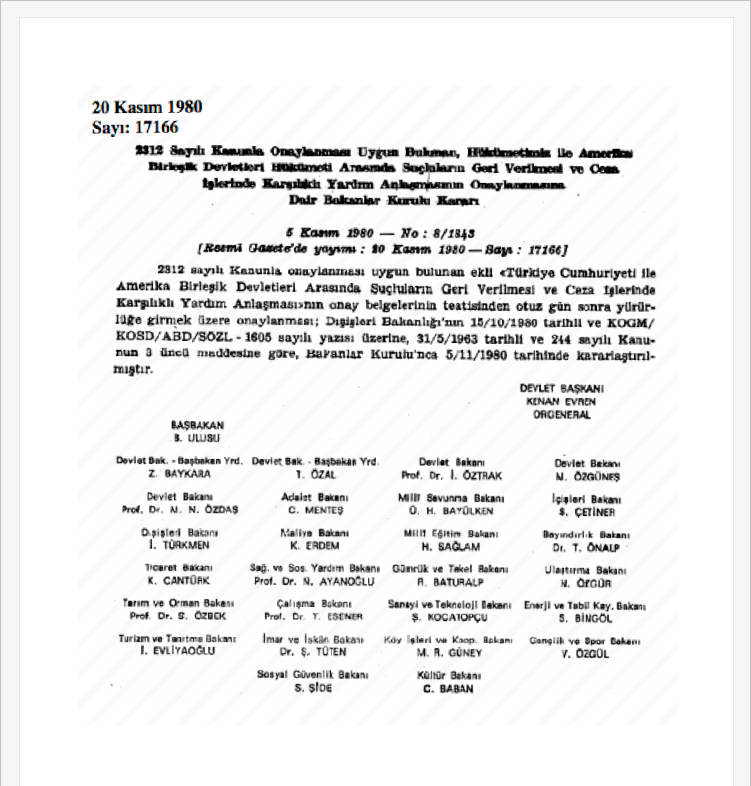
The agreement stipulates that if the extradition request is of a political character, it might be rejected. The rejection of the request cited in Article 3 includes “prosecut[ing] or punish[ing] the person sought for an offense of a political character or on account of his political opinions.” The agreement also suggests: “However, any offense committed or attempted against a Head of State or a Head of Government or against a member of their families shall not be deemed to be an offense of a political character,” and the request cannot be rejected. Article 3 Clause 1 Subclause a of the agreement constitutes one of the most important bases of Turkey’s extradition request. FETÖ-affiliated putschist soldiers raided the hotel where
President Erdoğan was staying in Marmaris in an attempt to assassinate him. However, Erdoğan and his family left the hotel shortly before the assassination team arrived. Brig. Gen. Gökhan Şahin Sönmezateş, who led the assassination team, confessed in his testimony to prosecutors that he was a FETÖ member and the assassination attempt was aimed at Erdoğan. This strengthens Turkey’s hand in the extradition process. At this point, it can be said Article 3 of the extradition agreement constitutes one of the most important reference points for Turkey’s request for Gülen’s extradition.
The offender shallbe detained until the competent authorities of the requested party reach theirdecision.
Turkey has sent 85 boxes of files to the U.S. for Gülen’s extradition. Ankara’s another important request from the U.S. is the detention of Gülen until the extradition is fulfilled. Article 9 of the agreement includes details about this situation: “The Contracting Parties shall take all necessary measures after the information and documents related to the request for extradition have been received, including a search for the person sought. When located, the person sought shall be detained until the competent authorities of the Requested Party reach their decision. If the request for extradition is granted, the detention shall be continued until surrender.” On Sept. 28, Justice Minister Bekir Bozdağ announced that Ankara would request Gülen’s detention by the U.S. The U.S.’s detention of Gülen is an obligation in accordance with the agreement.
According to Article 10 of the agreement, in cases of emergency, it is necessary that the offender be detained by the authorities of the country where he is located.
Likewise, Article 10 of the agreement includes the decision of detaining the accused in cases of emergency. It stipulates: “In cases of urgency, either Contracting Party may apply for the provisional arrest or detention of the person sought before the request for extradition has been submitted to the Requested Party through diplomatic channels. The request for provisional arrest or detention may be made either through diplomatic channels or directly between the Department of Justice of the United States and the Ministry of Justice of Turkey.”
Political and judicial debates
While the 44-article agreement addresses the extradition process between the two countries, it also stipulates that the necessary process for the extradition shall be fulfilled through negotiations between Turkey’s Foreign Ministry and the U.S. State Department. The request for immediate arrest can be made directly through Turkey’s Justice Ministry and the U.S. Justice Department.
Although the extradition process is presented as a judicial issue by the U.S. administration, it is not only a judicial, but also a foreign policy matter.
Although the U.S. administration presents Gülen’s extradition as a judicial matter and conveys the message that a judicial ruling will be pursued, extradition processes in the international arena and between two countries are considered apart of foreign policy. For instance, the asylum requests of the FETÖ-linked soldiers who fled to Greece were assessed by Greek authorities and underwent a judicial process. However, while the asylum requests of eight FETÖ-affiliated soldiers who were involved in the coup attempt were being evaluated, the Greek government announced that it would extradite the offenders in accordance with the extradition agreement it has with Turkey. The U.S. administration, however, is presenting the case as a completely judicial issue and is attempting to push the administration out of the extradition process. Certainly, extradition processes between countries might differ within the framework of both judicial processes and domestic policies. However, especially considering Articles 2, 3,9, 10 in addition the rest of the extradition agreement that binds both countries, documents pointing to FETÖ as a result of the internal judgement in the U.S. and the coup process require Gülen’s extradition.































